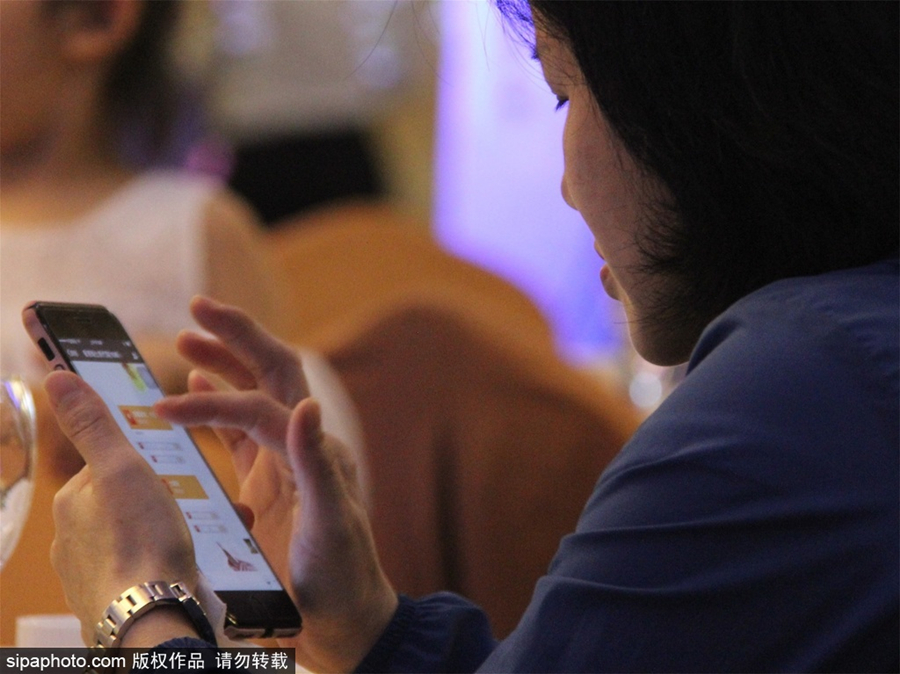A good start to protect personal information

A person uses a mobile phone in Zhuhai, South China's Guangdong province, May 1, 2017. [Photo/Sipa]
On opening any smartphone app these days one is instantly asked to authorize it to either collect one's facial recognition data or obtain access to the address book. Many users briefly hesitate, wondering whether giving access to the personal information this way is safe, but ultimately give in because unless one clicks "Yes, I agree" one cannot continue further.
In a document introduced on Monday, the Ministry of Industry and Information Technology, the Ministry of Public Security and some other departments have listed clearly the necessary personal information that 39 categories of apps can collect. The document will come into effect on May 1.
For example, a car-hailing app can only obtain a user's name, telephone number and location, because such information is necessary. The user's photograph and gender are unnecessary details and hence the app should not collect them.
The move is a clear signal that apps should refrain from obtaining detailed personal information, let alone sell it for money.
In 2018, a China Consumers' Association study of 100 apps found 90 of them obtaining unnecessary personal information of users. Many users have found their personal information "stolen" in this way. All that must stop. In 2019, four ministries jointly issued a document asking app developers to obtain users' consent before collecting their personal information. The app makers found a way around it by making the consent part inconspicuous in a long list of terms and conditions that a user has to browse through before giving consent.
However, the latest document safeguards users' personal information by defining what constitutes "necessary personal information". So, beginning May 1, if a weather report app collects users' facial recognition information, the users can report it to the authorities.
Of course, it will be wrong to assume the document alone will end the practice. For instance, some apps introduce "multiple" functions to collect more information, which calls for stricter regulation. However, the document is a good beginning in that direction.
























